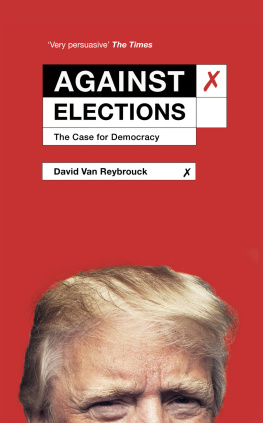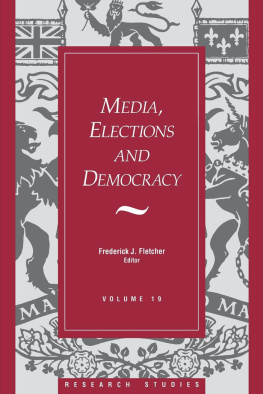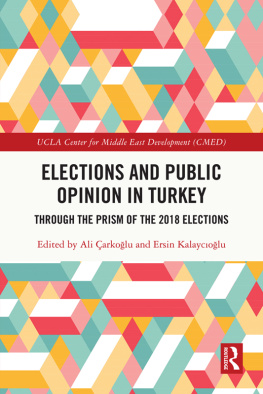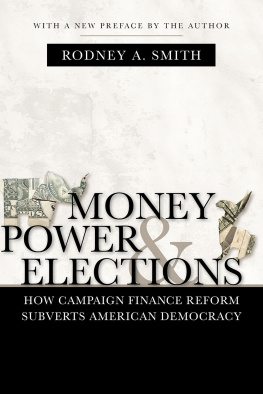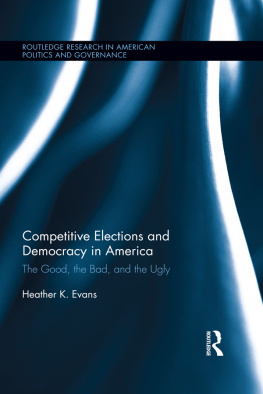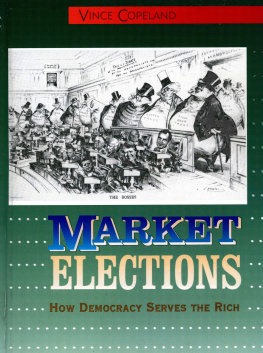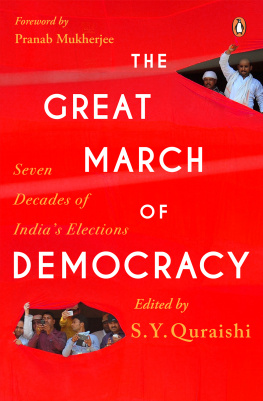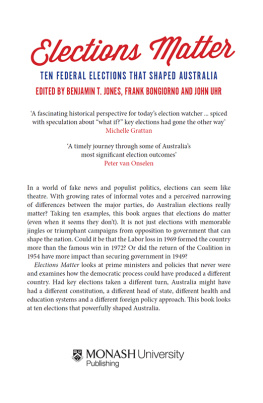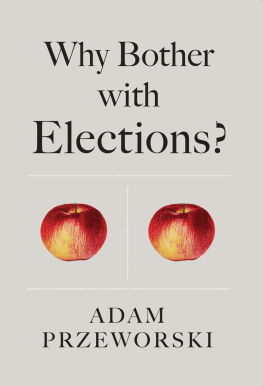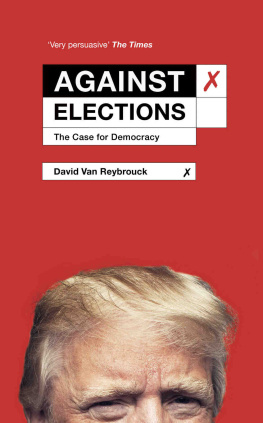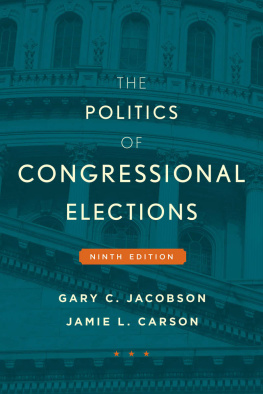Contents
ALSO BY DAVID VAN REYBROUCK
Congo: The Epic History of a People
This ebook is copyright material and must not be copied, reproduced, transferred, distributed, leased, licensed or publicly performed or used in any way except as specifically permitted in writing by the publishers, as allowed under the terms and conditions under which it was purchased or as strictly permitted by applicable copyright law. Any unauthorized distribution or use of this text may be a direct infringement of the authors and publishers rights and those responsible may be liable in law accordingly.
Epub ISBN: 9781473546998
Version 1.0
1 3 5 7 9 10 8 6 4 2
THE BODLEY HEAD
20 Vauxhall Bridge Road,
London SW1V 2SA
The Bodley Head is part of the Penguin Random House group of companies whose addresses can be found at global.penguinrandomhouse.com.
Copyright David Van Reybrouck 2013
English translation copyright Liz Waters 2016
David Van Reybrouck has asserted his right to be identified as the author of this Work in accordance with the Copyright, Designs and Patents Act 1988
Liz Waters has asserted her right to be identified as the author of this Translation in accordance with the Copyright, Designs and Patents Act 1988
First published in English by The Bodley Head in 2016
First published under the title Tegen Verkiezingen by De Bezige Bij in 2013
This book was published with the support of the Flemish Literature Fund (www.flemishliterature.be)
penguin.co.uk/vintage
A CIP catalogue record for this book is available from the British Library
The people of England deceive themselves when they fancy they are free; they are so, in fact, only during the election of Members of Parliament: for, as soon as a new one is elected, they are again in chains, and are nothing.
Jean-Jacques Rousseau,
The Social Contract (1762)
I
Symptoms
Enthusiasm and mistrust: The paradox of democracy
There is something strange going on with democracy. Everyone seems to want it but no one believes in it any longer, even though international statistics tell us that more and more people say theyre in favour of it. A few years ago the World Values Survey, a large-scale international research project, questioned more than 73,000 people in fifty-seven countries, representing almost 85% of the worlds population. When asked whether they believed democracy to be a good way of governing a country, no fewer than 91.6% answered in the affirmative. The proportion of the global population that has a positive attitude to the concept of democracy has never been as great as it is today.
This degree of enthusiasm is nothing short of spectacular, especially in light of the fact that less than seventy years ago democracy was in a very bad way. As a result of fascism, communism and colonialism, when the Second World War ended there were only twelve fully fledged democracies.
Yet enthusiasm is declining. That same World Values Survey showed that worldwide over the past ten years, there has been a considerable increase in calls for a strong leader who does not have to bother with Parliament and elections, and that trust in parliaments, governments and political parties has reached a historical low. It would appear that people like the idea of democracy but not the reality of it, or at any rate not the current reality.
This reversal can be attributed in part to the new democracies. Twenty years after the fall of the Berlin Wall, disillusionment in many countries of the former Eastern Bloc has become particularly marked. The Arab Spring does not appear to have heralded a democratic summer and even in countries where elections have been held (Tunisia, Egypt), many people are discovering a darker side to the new order. For those who experience democracy for the first time it is sorely disappointing to discover that in practice democracy is often a less than ideal system, especially when democratisation is accompanied by violence, corruption and economic decline.
But that is not the only explanation. Even convinced democrats are afflicted by feelings of uncertainty and nowhere is this paradox more striking than in Europe. Although the concept of democracy has historical roots here and can still rely on mass support, trust in the actual institutions of democracy is visibly declining. In the autumn of 2012, Eurobarometer, the European Unions official research bureau, noted that only 33% of Europeans still have faith in the European Union. (In 2004 the figure was 50%.) Faith in their own national parliaments and governments was even lower at 28 and 27% respectively. These figures are some of the lowest in years, an indication that today, two-thirds to three-quarters of people distrust the most important institutions of their political ecosystems. Although a certain scepticism is an essential component of critical citizenship, we are justified in asking how widespread this distrust might be and at what point healthy scepticism tips over into outright aversion.
Recent figures give the impression that a general distrust pervades public life in Europe, not confined to formal politics but also encompassing public services, such as postal deliveries, healthcare and the railways. Faith in politics is part of a broader experience, but if we look specifically at democratic institutions, then its clear that political parties meet with the greatest distrust of all (they score an average of 3.9 out of 10 among EU citizens), followed by governments (4 out of 10), parliaments (4.2 out of 10) and the press (4.3 out of 10).
The distrust is mutual, incidentally. In 2011 Dutch researcher Peter Kanne presented some interesting figures on how politicians in The Hague look at Dutch society. A full 87% of the countrys governing elite sees itself as innovative, freedom-loving and internationally oriented, but 89% think the Dutch are generally traditional, nationalistic and conservative. So politicians assume that, on the whole, citizens adhere to other, in their view lesser, values than they do and theres no reason to believe that the picture is different elsewhere in Europe.
However, getting back to the citizen, the reason often given for this increase in distrust is the apathy which results from individualisation and consumerism. This is said to dull citizens critical engagement to such an extent that their faith in democracy has subsided into half-heartedness. At best they now bob about in listless indifference and change channels the moment politics is mentioned, having given up, we are informed, on politics. That, however, is not entirely in accordance with the facts, as while it may be true that a substantial proportion of people have little interest in politics, that has always been the case. There has been no recent decline, in fact research shows that concern about political issues is greater than it used to be and people discuss such issues with friends, family and colleagues more than they did in the past.
This interest in politics is not a reason to feel reassured, however, as an era in which interest in politics grows while faith in politics declines always has something explosive about it. After all, it means theres a growing gulf between what citizens think and what they see politicians doing, between what they regard as vital and what in their view the state is neglecting, resulting in a build-up of frustration. What does it mean for the stability of a country if more and more people warily keep track of the doings of an authority which they increasingly distrust? How much derision can a system endure? And is it still merely derision, now that everyone can express and share their deeply felt opinions online?

